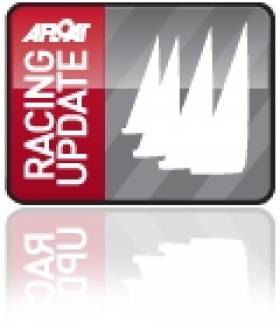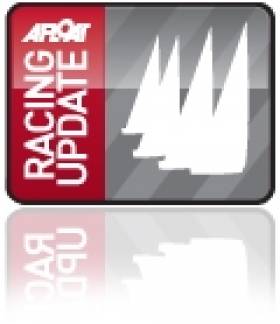Displaying items by tag: Three Peaks
Entry Now Open for Three Peaks Yacht Race in 2023
Entry is now open for the Three Peaks Yacht Race which celebrates its 45th year in 2023.
Regarded as the oldest multi-sport endurance race in the world, the Three Peaks race is a combination of yacht racing and summit runs up the tallest peaks in Wales, England and Scotland.
Ireland has previously enjoyed success in the four-day endurance challenge, with Magic Touch — an Irish Beneteau First 34.7 — claiming the IRC trophy and placing second overall in the 2018 race, as previously reported on Afloat.ie.
For more information on and details of how to enter the Barmouth to Fort William Three Peaks Yacht Race, starting on 10 June 2023, see threepeaksyachtrace.co.uk.
Three Peaks Yacht Race Entries Must Have IRC Handicap Cert
The Barmouth to Fort William Three Peaks Yacht Race combines yachting, mountain running and cycling into one of the greatest adventure challenges in British sport and will take place this year from June 27th.
In 2011, in the biggest and most competitive race in the 34 year history of the Three Peaks Yacht Race, the Irish boat 'Danu Technologies', skippered by Glen Ward, stayed ahead of the competition to win in a time of 77 hours 37 minutes.
Teams consist of three sailors and two runners, who set sail from Barmouth on the Welsh coast to Fort William in Scotland, via Caernarfon and Whitehaven, racing to the summits of Snowdon (3560ft) Scafell Pike (3208ft) and Ben Nevis (4408ft) on the way.
The race now in its 38th year is one of the oldest adventure challenge races in the world. The first event in June 1977 featured just seven yachts, with only four able to complete the course and over the years a total of 500 teams have competed in the event, amongst them some famous faces including renowned sailors Robin Knox Johnston, Bob Fisher & Skip Novak, and the legendary fell runner Joss Naylor.
The race has an international reputation and the sailing/mountain running idea has been copied in various locations around the world, but it is the original event that most aspire to, and those who do enter often return time and again.
The course consists of 389 miles of testing coastal sailing, 24 miles of cycling and 60 miles of mountain running, with a total ascent of 14,000ft to the highest points in Wales, England and Scotland.
However, there have been some changes over the years as the race adapts to the times, and this year there are significant new rules in the Lake District section of the race. The cycle into Ennerdale from Whitehaven has been lengthened and racers will now leave their bikes at Black Sail Youth Hostel, running from there to the summit of Scafell Pike and back.
Sailing times in Whitehaven will now also be taken once yachts are underway in the outer harbour, so that any waiting time caused by the tidal lock gate to the marina is not included in race time. All entries this year must have an IRC handicap certificate (these can be a bought just for the race if required).
The race attracts competitive sailors and past winners who are aiming to win, and those more used to coastal cruising, who are in new and unfamiliar territory and just hope to finish, avoiding sand banks, inshore rocks and whirlpools along the way! The old hands know rowing the yachts will be critical at some point, and the new comers will not quite believe it, until the moment comes! The athletes include triathletes, marathon, mountain and ultra runners, adventure racers and those who just plan to walk up the mountains.
The 2015 race begins from Barmouth on Saturday June 27th, and you can find out more on the new race website.
This now includes race videos, a notice board for putting teams together and a complete historical results archive. You can also download the race entry form there and entry costs £850 per team for the week long adventure of a lifetime.
Mid-Week Wrap up: Fireballs, Lasers, Three Peaks, Calves Week, VOR and Life Saving Honours
An Irish debutant leads the fleet after four days of competition in the Three Peaks Yacht Race. Last night Glen Ward's crew were climbing Ben Nevis.
Half the country is heading for the Tall Ships.
400 are now expected for next week's Volvo Dun Laoghaire Regatta.
There's only a month to Calves week in West Cork. The race programme (plus a sponsor) has been unveiled.
One year to go to the finish of the Volvo Ocean race. Galway gets serious.
Who should be June's Sailor of the Month? Water Rat asks are two medals a realistic expectation from London?
And finally, a German Honour on an Irish Lifesaver. Well done Frank Nolan.
All these stories – and more – on our home page this morning!































































